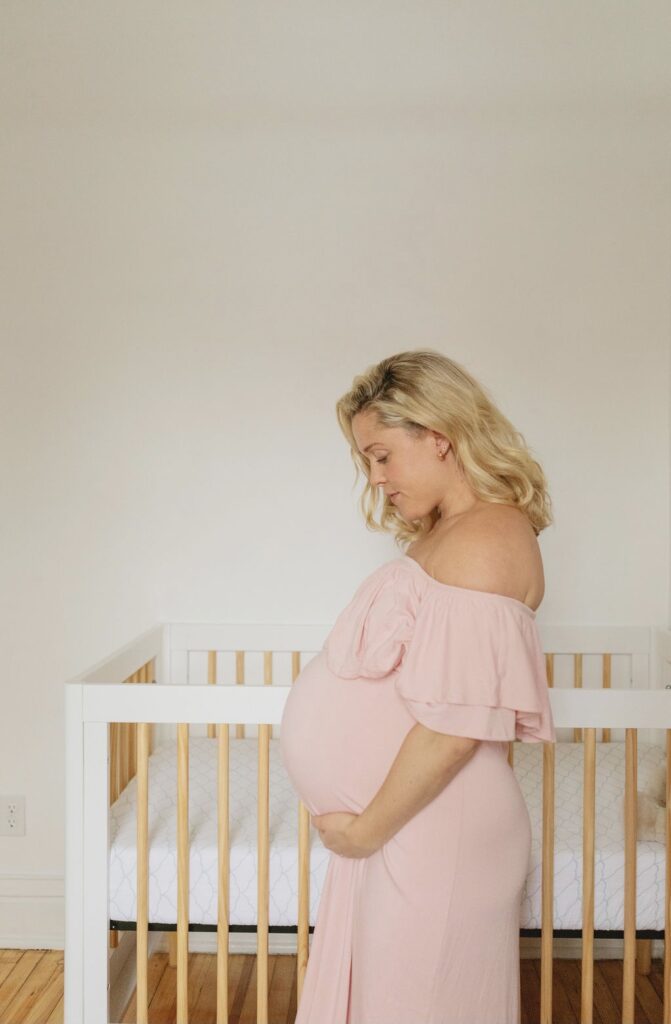Whether childbearing is on the back burner, or you’re currently trying to conceive, you might be left wondering—is it too late? Probably not! In fact, as of 2019, the median age for first-time births rose. 30 is the new 27. This has come as many women are increasingly choosing to conceive in their 30s and 40s. This is for a myriad of reasons—personal, professional, and financial. Today, we’re diving into a topic that’s near and dear to my heart: how to boost your fertility in your 30s. No matter if you’re in your early, mid, or late 30s, it’s not too late to optimize your fertility and increase your chances of conceiving.

The latest research on fertility and age
The data’s in: women are giving birth later. This is great news. Although fertility declines as we age, it’s not nearly as dramatic as most of us think. When I first learned that fertility starts to drop in our early 30s, I essentially pictured a slim-to-none chance of conceiving after 38. That’s not the case. In all reality, it’s more of a dip—not a nosedive—at 35. A reassuring study (cited in these guidelines) found that women ages 30-34 have an 86% chance of getting pregnant within one year of trying to conceive. And they have a 94% chance of conceiving after two years. For women ages 35-39, there’s an 82% chance of conceiving after one year, and a 90% chance of conceiving after two years. These are far from dismal percentages!

How lifestyle impacts fertility
Lifestyle has an impact on just about every part of health and wellbeing—including fertility. Luckily, there are a variety of lifestyle habits you can implement to protect your egg quality, reproductive organs, and hormone health. In turn, all of these things support optimal fertility! Prioritizing quality sleep, balancing blood sugar, eating nutrient-dense foods, and incorporating moderate exercise have all been shown to increase fertility. Thanks to the power of a balanced, well-nourished lifestyle, it’s possible that reproductive health has less to do with chronological age and more to do with biological age. At any rate, now’s the time to incorporate natural ways to boost your fertility in your 30s.
How to Improve Your Fertility in Your 30s
Below are six natural ways to boost your fertility in your 30s. I hope these tips give you some direction, guidance, and hope. It’s never too late to improve your chances.
Be sure to consult with your primary care physician or health care provider before making changes to your diet and lifestyle.

1. Stop stressing about Your Timeline
First and foremost, stop beating yourself up for waiting. Your life, your timeline. Trust the unfolding. Stressing about your age, wallowing in should-haves, and berating yourself for not trying to get pregnant sooner will only hinder—not help—your chances of conceiving. This negative attitude will leave you feeling guilty, frustrated, and emotionally drained. There is no shame in living a life filled with memories, experiences, and learning opportunities! Looking at things from a different lens, that’s a fertile life. Fertility is more than conception and reproduction. Fertility is about being full, creative, productive, and vibrant.
2. Have an Honest conversation with your doctor
As soon as you even start thinking about trying to conceive, talk to your provider. Let them know you’re planning to have a family. Together, review your menstrual cycle. Ask to have labs done to rule out conditions like hypothyroidism, amenorrhea, and PCOS. Blood tests can also rule out nutrient deficiencies (which can impair fertility). In essence, your doctor can help you take a proactive approach to getting your body ready. Set yourself up for success!
3. Eat nutriTious foods
When it comes to nutrition, you want to make sure you’re eating enough, consuming a variety of high-quality ingredients, and keeping blood sugar balanced. Eating enough (which most women aren’t doing!) ensures your body has proper fuel for the very energy-intense process of developing a mature egg, ovulating, conceiving, and carrying a baby to term. Secondly, variety ensures your body is getting in the vitamins and minerals it needs for optimal reproductive health. Include plenty of antioxidant-rich and anti-inflammatory foods. After all, one of the surmised pieces of the decline in fertility is due to oxidative stress. This stress can have a negative effect on egg quality. Lastly, you want to keep your blood sugar as stable as possible. This decreases inflammation in the body, supports optimal sleep, and so much more.
4. Replenish nutrients lost from birth control
There’s no denying that birth control pills can deplete vitamins and minerals. Eating a variety of foods—as well as taking a multivitamin / prenatal—can help replace valuable nutrients. This is another reason why you’ll want to have your nutrient levels checked before trying to conceive. You might need a higher dose of some vitamins and minerals, like B vitamins. Again, a blood panel will help with this!
5. Prioritize sleep and stress management
We’re often so focused on food and fitness that we totally skip over two incredibly important roles in our wellbeing: sleep and stress. Not only do both of these impact reproductive and overall wellness, but they also support nutrition and exercise. After all, it’s hard to eat well and be active when you’re tired and stressed out. Plus, stress and sleep quickly throw blood sugar out of whack. Here are some quick tips to support restorative rest and stress relief:
- Do more of what makes you happy. Cliche, I know. But joy and pleasure are underrated. Watch your favorite movie, buy yourself flowers, take a bath, etc.
- Spend time with people you love.
- Get outside and disconnect from your digital life. Time in nature is rejuvenating and healing on so many levels.
- Limit your screen time before bed. Easier said than done, but this article has helpful hacks. Journal or read a book instead. Do what works for you!
- Find an acupuncturist near you. Most health insurance plans cover acupuncture!
6. Slow down aging with meditation
Research shows that meditation has the potential to reverse—or at least stave off—the age-related changes to DNA that can negatively affect fertility. Aim to practice yoga and / or meditate 2-3 times a week (more if time permits). And it doesn’t have to be an hour-long practice. Just get started with whatever time you have even if it’s just 5 minutes a day.

This article is for informational purposes only. It is not, nor is it intended to be, a substitute for professional medical advice, diagnosis, or treatment and we recommend that you always consult with your healthcare provider.



Leave a Reply